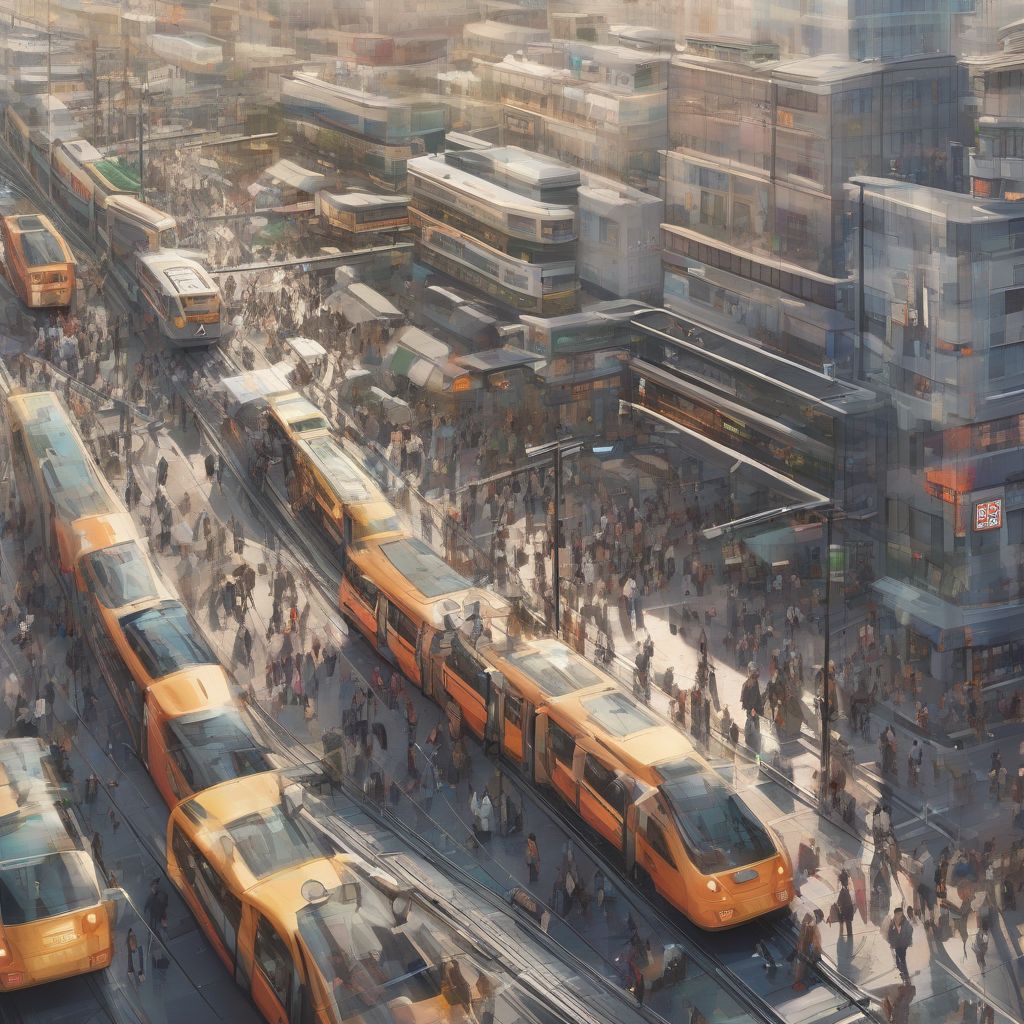Imagine a city where the air is clean, traffic flows smoothly, and getting around is easy and affordable. Sounds like a dream, right? Well, it’s a dream that public transportation can help turn into reality. As a nutrition and meal planning expert, I know a thing or two about creating healthy systems, and when it comes to sustainable cities, public transport is like the nutritious backbone.
Why Public Transportation is Essential for Sustainability
The impact of our cities on the environment is undeniable. From air pollution to carbon emissions, we need solutions, and efficient public transportation systems are right at the top of the list. Here’s why:
1. Reducing Our Carbon Footprint
Let’s face it, cars are convenient, but they’re also a major source of greenhouse gas emissions. Public transportation, on the other hand, carries more people per vehicle mile, significantly cutting down on these harmful emissions. By choosing buses, trains, or subways, we’re making a conscious decision to lessen our impact on the planet.
2. Combating Traffic Congestion
Picture this: you’re stuck in rush hour traffic, your car barely moving, and your frustration levels are soaring. We’ve all been there! Public transport systems help alleviate this gridlock, making our commutes smoother and our cities more livable. Less traffic also means less idling, which further reduces air pollution and improves air quality.
3. Promoting Economic Growth
Investing in public transportation isn’t just good for the environment, it’s good for the economy too! It creates jobs in manufacturing, operations, and maintenance. Plus, accessible and efficient transport systems make cities more attractive to businesses and residents, boosting economic growth.
Creating Cities That Work for People and the Planet
Making public transportation a cornerstone of our cities requires a multi-pronged approach:
1. Investing in Modern and Efficient Systems
No one wants to ride on a crowded, unreliable bus or train. Investing in modern, comfortable, and efficient public transport systems is crucial to encourage people to ditch their cars. Think sleek light rail systems, electric buses, and user-friendly apps for seamless trip planning.
2. Seamless Integration and Accessibility
Imagine being able to hop off a train and onto a bus with ease, using a single, integrated ticketing system. Seamless connections between different modes of transport make public transportation a more attractive option for everyone.
3. Affordable for All
For public transport to be a truly sustainable solution, it needs to be accessible to everyone, regardless of income level. Implementing fare subsidies, discounts, and innovative payment options can ensure affordability and encourage wider use.
 Public Transportation in the City
Public Transportation in the City
The Power of Choice: Shifting Our Mindset
Ultimately, the success of public transportation relies on us – the commuters. Choosing to leave our cars behind and embrace public transport is a powerful step towards a greener future. Just like we make conscious decisions about the food we eat to nourish our bodies, we can make similar choices about how we move around our cities to protect our planet.
Conclusion: Riding Towards a Brighter Tomorrow
Public transportation is more than just a way to get from point A to point B; it’s a powerful tool for building more sustainable, equitable, and livable cities. By investing in efficient systems, prioritizing accessibility, and encouraging a shift in our commuting habits, we can create cities that work for people and the planet. Together, let’s hop on board the public transport revolution and ride towards a brighter, greener future. Now, tell me, what steps are you taking towards sustainable living in your own life?
[amazon bestseller=”sustainable cities”]
